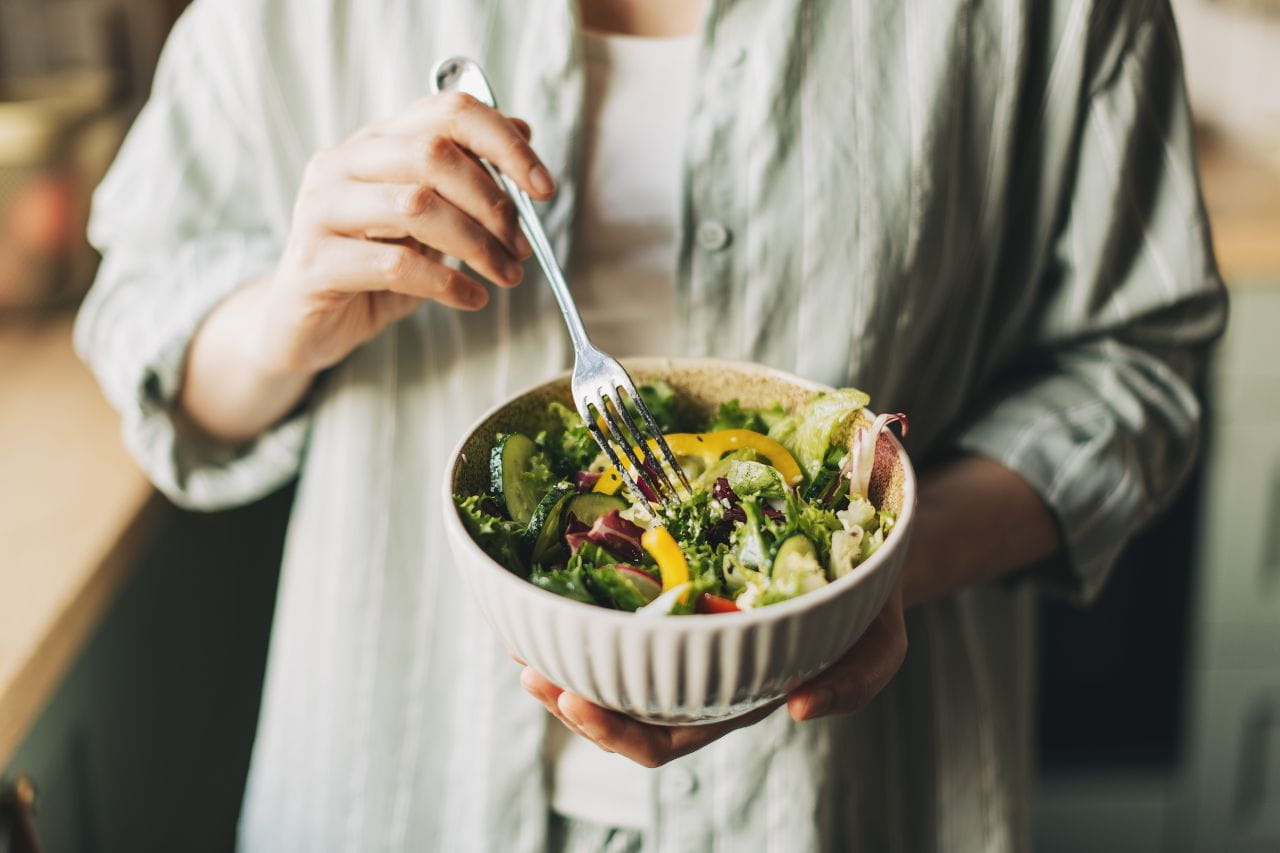Endometriosis and Diet

Endometriosis is a condition where tissue similar to the uterine lining grows outside the uterus. Symptoms include pain, nausea, fatigue, and heavy periods, which adversely affect a person’s quality of life.
Doctors can treat endometriosis with medicine or surgery, and often both. But you can also make lifestyle changes to reduce your symptoms, including modifying your diet.
This article provides helpful information on what to eat and what not to eat to improve endometriosis symptoms.
What to Eat to Reduce Endometriosis Symptoms
High estrogen and inflammation are two factors that worsen endometriosis symptoms, and diet can play a role in both. If you have endometriosis, you should be aware of the effects of different foods on your condition.
Fiber
Appropriate estrogen levels are essential. However, too much of it can amplify endometriosis symptoms like pain and cramping.
Your body eliminates excess estrogen in your stool, so it’s best to have a bowel movement every day. Getting plenty of fiber in your diet can help. You’ll find it in whole grains (whole-wheat bread, brown rice, etc.), fruits, vegetables, and legumes like beans and chickpeas.
Remember to increase your fiber intake gradually to avoid gas, bloating, and intestinal issues.
Good fats
Omega-3 fats help reduce inflammation naturally. You can increase your levels of good fats by eating foods like fatty fish (salmon and tuna, for example), nuts and seeds, and plant oils like canola and flaxseed oil.
You can also benefit from monounsaturated fats in foods like avocados, peanut butter, olive oil, safflower oil, and others.
Minerals
Magnesium and zinc are essential for easing cramping and regulating menstrual cycles, respectively.
Magnesium is found in leafy green vegetables (spinach, kale, arugula, etc.), legumes like edamame and black beans, nuts and seeds (almonds and pumpkins in particular), and dark chocolate. But be sure to consume chocolate in small amounts, as it has lots of sugar.
Getting enough zinc helps your body ovulate, which causes an increase in progesterone that balances out estrogen. That shift has a positive effect on endometriosis symptoms.
You’ll find zinc in chicken and turkey, shellfish (crab, lobster, oysters, etc.), and red meat (which you should limit to a few servings per week). If you have a vegetarian or vegan diet, you should talk with your doctor about taking a zinc supplement.
What Not to Eat if You Have Endometriosis
Some foods and beverages can worsen endometriosis symptoms, including:
- Processed foods. They often have ingredients that increase inflammation.
- Alcohol. Limit consumption to two drinks per week.
- Caffeine. Limit your daily consumption to 400 milligrams. (One 8-ounce cup of coffee has around 95 milligrams of caffeine.)
- Drinks with high sugar content. Sodas, fruit juices, and energy drinks are typically high in sugar, which increases inflammation. Limit your daily intake to 26 grams of sugar.
- Fatty meat. Red meat is good for you in small amounts. Avoid letting your saturated fat intake exceed 10% of your daily calories.
Learn More About Endometriosis and Diet from Baptist Health
Endometriosis can be a frustrating and uncomfortable condition. But you can take steps to control your symptoms by eating and avoiding specific foods. The right diet can support proper estrogen levels and minimize inflammation.
If you have questions about endometriosis and diet, our women’s services experts are happy to answer them. They can also talk with you about other lifestyle choices and treatments that can positively impact the condition, like yoga, meditation, acupuncture, and massage.



